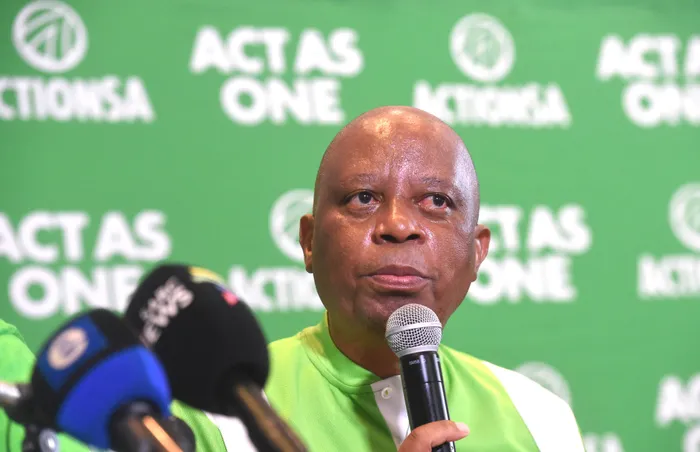Anti-migrant politics escalate as ActionSA seeks to change Constitution

Analysts say political parties hoping to score points with anti-migrant sentiment ahead of 2026 local elections are going to be disappointed.
Image: Itumeleng English/Independent Newspapers
As the 2026 local elections draw nearer, political analysts expect a rise in anti-immigrant rhetoric - but caution that parties banking on such sentiment may face disappointment.
This follows ActionSA’s submission of a series of proposed constitutional amendments aimed at tightening provisions the party says have been exploited, contributing to South Africa’s immigration crisis.
The party claims that existing constitutional clauses have enabled abuse of limited public resources, particularly in housing, healthcare and education.
ActionSA’s parliamentary leader, Athol Trollip, said the proposals were intended to guide Parliament’s Joint Constitutional Review Committee, while still upholding the Constitution’s core principles.
“Our proposed amendments recognise the noble aims of the Constitution as a living document,” said Trollip. “But we must also prioritise protecting the rights of genuine residents and close off interpretations that inadvertently enable abuse.”
A key focus is amending the Preamble of the Constitution. Trollip argued that the phrase “South Africa belongs to all who live in it” has been misinterpreted to extend protections to undocumented migrants.
“This misreading has placed undue pressure on public resources and compromised the government’s responsibility to prioritise the needs of South Africans,” he said.
“A careful revision is needed to reaffirm the original intent without undermining the inclusive spirit of the Constitution.”
ActionSA also wants to amend Section 26 of the Bill of Rights to limit the state’s obligation to provide Temporary Emergency Accommodation (TEA) to South African citizens and those lawfully present in the country.
“The current universal application of Section 26 has led to unintended consequences,” Trollip said.
“Municipalities are forced to divert scarce housing and emergency accommodation resources to individuals who are not lawfully present.”
Similar revisions are being proposed for Section 27 (healthcare) and Section 29 (education), citing strained public services.
Trollip noted that clinics in Johannesburg have reported over 70% of patient files belonging to foreign nationals, and schools face court-ordered enrollments that strain limited capacity.
Meanwhile, political analyst Siyabonga Ntombela from the University of KwaZulu-Natal told IOL News that while the proposals reflect real public concerns, they are unlikely to shift electoral dynamics significantly.
“South African politics often revolves around personalities and party loyalty, not policy,” Ntombela said.
“This move by ActionSA may be warranted, but it’s unlikely to sway voters dramatically. Local government elections will likely mirror previous general election outcomes.”
He added that although the proposals might raise concerns among NGOs, they are unlikely to provoke a hostile international reaction since no evictions or forced removals are being proposed.
However, Ntombela acknowledged that the amendments could exacerbate existing social tensions.
“Of course, they will deepen political and social divides, but they’re not likely to spark xenophobic violence if handled constitutionally by the government,” he said.
He pointed to a wave of public protests and political scrutiny, such as KZN Premier Thami Ntuli’s recent factory visits targeting illegal employment of immigrants, as signs of mounting public pressure.
“This is a national imperative that should be handled with care and humility,” Ntombela said.
“Any party thinking this will automatically win them votes is doing it for the wrong reasons.”
Another political analyst, Professor Theo Neethling, said ActionSA is not alone in taking a hardline stance on immigration.
“Operation Dudula has transformed from a grassroots movement into a political party known for its anti-immigration rhetoric. Parties like the Patriotic Alliance and ActionSA have followed suit,” he said.
Neethling said that while these parties may not have enough support to pass constitutional amendments, their messaging resonates with a frustrated electorate.
“Anti-immigrant sentiment is not unique to South Africa. We’ve seen similar trends in countries like Austria and Hungary,” he said.
“In South Africa, worsening economic conditions and high unemployment are making voters more susceptible to this rhetoric.”
He warned that as the elections approach, more parties may lean into anti-migrant narratives in an effort to gain traction.
“What’s different now is how overt these pledges are, some parties are openly promising to deny migrants equal rights and prioritise deportations,” he said.
simon.majadibodu@iol.co.za
IOL Politics